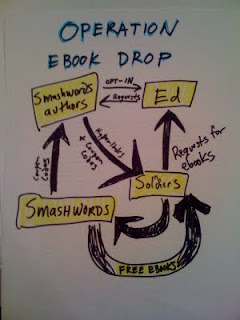This post, from Hugh Briss, originally appeared as a guest post on the Twitip site on 11/12/08.
A Custom Twitter Background can make a real impression and enhance your brand – but how do you make one? In this guest post post Hugh Briss from Twitter Image (a service that offers custom Twitter backgrounds) shares some tips on how to make your own.
I know what they say about making assumptions but I’m going to make one now and assume that most of you already understand the potential of Twitter, especially for those of us with something to promote. If you aren’t yet convinced that Twitter is going to do for the Internet what sliced bread did for the sandwich, I encourage you to spend more time reading Twitip. My job today is not to evangelize Twitter — which I love to do — but to talk about how to create cool Twitter backgrounds and show you how valuable the proper use of that space can be.
Generic is Only Good for Prescriptions
In addition to the generic Twitter background, Twitter currently offers 12 stock backgrounds along with pleasing preset colors for the elements on the page. You can also modify the colors of the overall background, text, links, sidebar background and the sidebar border. The first thing any Twit (easier to say that Twitterer) should do is change the generic background, unless you don’t like standing out from the crowd, in which case you can stop reading now.
Switching backgrounds and changing the color palette of your Twitter page is easy to do. Simply select "Settings" in the top row of links on your Twitter page, click on the "Design" tab and then either select a "theme" or click on "Change background image" or "Change design colors" and get creative. Don’t worry about goofing anything up. Any changes you make will not be visible to anyone but you until you click "save".
 |
 |
 |
Themes are Good but Why Stop There?
Now I know that some of you will be perfectly happy with one of the themes Twitter has provided for you but there are still going to be thousands of Twits with the same background as you. It’s like going out in public wearing the same exact clothes as a bunch of other people — which is only cool if you’re going to a football game or a funeral.
With the holiday season fast approaching, this would be a good time to start looking for a nice Christmas-themed background, or Hannukah, Kwanzaa or whatever holiday you celebrate.
The best way to make sure that your Twitter page doesn’t look like anyone else’s is to upload your own background image. Those of you with the necessary skills might want to use Photoshop or a similar program to create your own from scratch. If that’s not a possibility, then there are other options. You can simply upload a photograph you’ve taken, for example. Another option is to find an image that will tile (repeat) in an appealing way. Search Google for "tile background" and you’ll find thousands of places to get them.
Colour Lovers is an excellent place to start if you want to make your own tiling background patterns. They also offer palettes that will help you pick colors that go well together so your Twitter page doesn’t look like you picked the colors with your eyes closed or let your 3-year old do it for you.
Twitter Patterns is another great place to find patterns for your tiled background.
Here are some pattern generators that are a lot of fun to play around with:
Read the rest of the post, which includes much more information and links to some excellent free Twitter resources, on Twitip.


 (I’m no model so this is making the best of a bad job!. I have more books and less hair now.)
(I’m no model so this is making the best of a bad job!. I have more books and less hair now.)
